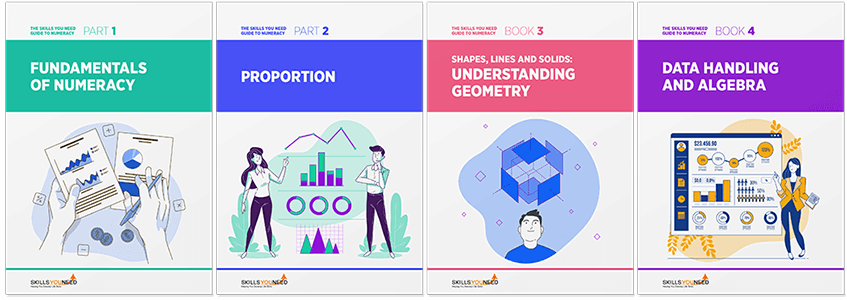11 Key Skills Every Accountant Needs to Succeed
Numeracy SkillsAccounting and finance industries have become competitive, and companies only seek highly skilled accountants. You must be highly distinguished to be considered for an interview, and exceptional to secure a job. Although impressive transcripts and certifications still matter, employers are looking to hire accountants with specific skills, and you need these skills to make a breakthrough in the accountancy sector.
Above all, accountants still need to possess top-notch analytical abilities; however, these days, an accountant’s “soft skills” are becoming more important than they ever used to be. One reason for this is that significant portions of the accountant’s job are extremely vulnerable to being automated.
The race to automate is already well underway, but it still remains in its infancy. Many makers of accounting software have already incorporated artificial intelligence and machine learning into their products. This has made it easier than ever before for businesses to do their own bookkeeping and accounting. Experts at think tanks such as McKinsey tell us that if things continue along this trajectory, there will be fewer routine jobs for bookkeepers and accountants in the future. They’ve calculated that as much as 86% of the usual daily tasks performed by bookkeepers, accountants and auditing clerks could potentially be automated.
It’s now critically important for accountants to excel at the portions of their job that artificial intelligence and algorithms cannot do. This means that the accountant’s role is in something of a state of evolution. A forward-thinking accountant will strive to take on more of an advisory type of role, where a human’s skills are paramount.
Most importantly, you will want to learn how to minimize the time you spend on transaction-processing activities, while maximizing the time you spend on activities that truly add bottom-line value for the clients and the firm you work with. These include risk management and financial planning, which can greatly increase profitability when handled well.

Below is a list of the top skills recommended by HR departments from leading companies and by the career experts at the US Bureau of Labor Statistics. Read on and kick start your journey in accounting.
1. Be a Techie
As an accountant, there is no running away from technology, and the tech sector changes constantly, with new software and software upgrades getting onto the market daily. Be familiar with all the latest technological trends in accounting. Employers are recruiting candidates with skills on specific technologies on their CVs, and it would help if you were knowledgeable about programs such as Excel, ERPs, modeling techniques, and SQL, to name a few. You also need to be familiar with accounting tools such as Sage Accounting and this accounting software by Wave.
2. Leadership
Leadership is one of the most sought skills in many sectors. Can you be trusted to do tasks with minimum supervision? Are you able to work as part of a team or even lead a team of accountants? Possessing strong leadership skills increases your chances of securing a job and determines your career advancement once hired.
3. Ability to Work on a Team
Are you a team player? In most cases, accounting involves being part of a team that might be multi-departmental. You need to be cooperative, emphatic, caring, and efficient to thrive in a team set up.
4. Self-Efficacy
It will help if you are enthusiastic and hard-working while carrying out your duties, while being understanding of your colleagues, resilient and full of integrity. These virtues are hard to develop, but having them puts you in an excellent position to progress in your career.
5. An Innovative Mindset
Working in a fast-paced environment, such as the finance sector requires an innovative mindset. As an accountant, you will be solving new challenges every day, and this requires you to think beyond your field and come up with efficient solutions to contemporary industry challenges.
6. Resilience
Building a career is not an easy process, and it is even harder when you are a fresh graduate. As expected, you will have to start with an entry-level position, such as a junior accountant position, where you will be doing more work for lesser pay than your seniors. You need to be resilient and maintain a positive attitude that will propel you through the ranks to higher positions in your career.
7. Critical Thinking Skills
Accountants must possess the ability to evaluate data, figure out when there are problems with the data or the documents supporting it, and propose solutions that will successfully resolve any issues that arise. As an accountant, you must not only have a thorough knowledge of current tax law; you must also have the ability to apply critical thinking and analytical skills to minimize tax liabilities for your clients – and you must be sure to comply with all relevant laws as you do so. This role will challenge you to sharpen and perfect your critical thinking skills, because you’ll be utilizing them every day.
8. Mathematical Skills
You’ll need strong skills in math in order to succeed as an accountant. For a senior-level accounting job, you’re likely to need to be proficient in more than just business math. It is not uncommon for the role to also require a high level of proficiency in calculus, probability, statistics and statistical analysis. These more rigorous mathematical disciplines are useful for tasks such as figuring out how to minimize production costs or making accurate predictions about what your company’s future sales statistics might be.
9. The Ability to Listen to Others and Read Between Lines
One of the most important parts of your accounting job will be listening to the concerns of your clients, managers and the other stakeholders in your company. It will also be important for you to think on your feet in order to formulate appropriate responses.
10. The Ability to Be Diplomatic in Discussions
Where money is involved, discussions can get heated. You’ll be an asset to your firm if you’re able to diffuse tensions in a calm, diplomatic and reassuring manner. You’ll also need to be strict about maintaining confidentiality on behalf of your clients and your firm.
11. A Meticulous Eye for Details
Accounting is a job that requires tedious levels of detail when compiling and analyzing documents. If you aren’t exceptionally detail-oriented, accountancy may not be a wise career choice for you.
Further Reading from Skills You Need
The Skills You Need Guide to Numeracy

This four-part guide takes you through the basics of numeracy from arithmetic to algebra, with stops in between at fractions, decimals, geometry and statistics.
Whether you want to brush up on your basics, or help your children with their learning, this is the book for you.
Endnote
The accounting industry is one of the best sectors to work in. Unfortunately, thriving in the sector remains a big challenge for many young accountants. If you want to stand out from the crowd, you have to commit time and resources to acquire the necessary soft skills sought by most companies.
About the Author
Andrej is an entrepreneur, a digital marketer and an avid internet technologist. Throughout his career, Andrej has combined his passion for cutting-edge technology with a keen eye for emerging industry trends to deliver customised marketing solutions to businesses and clients around the globe.
He believes that the key to modern marketing excellence is a constant willingness to learn and adapt to the ever-changing digital world.


